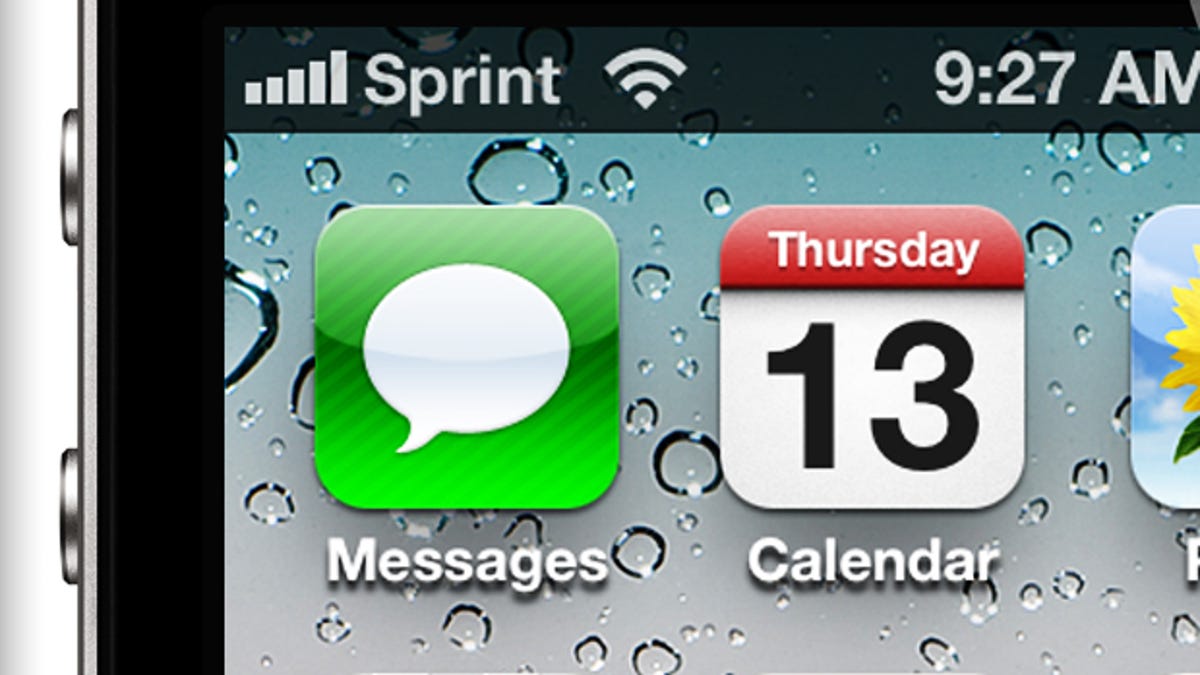Could a 4G iPhone actually hurt Sprint?
An iPhone with LTE capabilities could highlight the fact that Sprint's 4G rollout lags far behind its rivals. Sprint doesn't believe it will be an issue.

Seemingly everyone is on pins and needles awaiting an LTE-capable iPhone.
One company that may want to hold off on the enthusiasm is Sprint Nextel.
A new iPhone could actually hurt Sprint's competitive standing among the major wireless carriers. If the next iPhone is capable of tapping into LTE networks -- which is a virtual certainty given the emergence of LTE-compatible
"Consumers are becoming more familiar with what 4G speeds mean and we would continue to expect greater interest for Verizon and AT&T phones, which deliver those faster speeds," said Walter Piecyk, an analyst for BTIG Research.
From a broader perspective, LTE threatens to upend the pecking order and bragging rights among all of the carriers. AT&T currently boasts the fastest
But an LTE iPhone would change the equation. Verizon boasts the largest network by far, having blanketed two-thirds of the nation's population with the next-generation service. AT&T is up to 35 markets, while Verizon is in 230 markets after expanding to 27 new ones last week. All of a sudden, the speed advantage shifts to Verizon, which can boast of wider coverage.
Sprint is even further behind. Its LTE network doesn't exist yet, and the company has only said the service would only be available in six markets by the middle of the year. The company declined to provide any details on its planned future rollout.
"We're launching LTE markets as quickly as we can," said Sprint CEO Dan Hesse.
If a 4G iPhone emerges, expect a lot of chest-beating from Verizon and, to a lesser extent, AT&T, as the carriers talk up their 4G service. Sprint isn't going to have anywhere near as much to brag about.
Hesse, however, thinks the relatively thin 4G coverage won't bother consumers.
"I think we can still compete effectively," he said in an interview with CNET.
When the original Evo 4G came out, a majority of the sales went to non-4G markets, he noted. But that was also a different time when the Evo was the only 4G device in the market, and there were no comparable devices available. Now, if one of carriers gets an iPhone, virtually all others do too.
But Hesse has a point. The iPhone 4S has sold tremendously well for every carrier that it's on, in some cases outpacing all other phones. That's despite the fact that the iPhone 4S is a 3G-only smartphone, and competes with a wide array of 4G devices at the various carriers.
Clearly, the next iPhone will drive an explosion of sales, and Sprint will likely participate in that upswing. But the carrier may not get the lion's share, or even a fair share, of that growth as consumer begin to weigh the value of the LTE service.
That focus on LTE is why Sprint is moving so quickly on its Network Vision upgrade plan and the move to LTE, Hesse said.
Despite betting heavily on Apple and the iPhone, Sprint still lags behind AT&T and Verizon on iPhone sales. In the first quarter, AT&T sold 4.3 million iPhones, while Verizon sold 3.2 million iPhones. Sprint only managed to sell 1.5 million units, slightly down from 1.8 million sold in the fourth quarter. That's partly because AT&T and Verizon have much larger bases of customers seeking to upgrade their phones.
Hesse declined to provide any forecast for iPhone sales. Apple, however, said it expects iPhone sales to tick down in the next quarter.
"With an onerous take-or-pay contract with Apple, the shortfall in subscribers at Sprint -- and, more specifically, a shortfall in iPhone activations -- is more concerning than it is for Verizon or AT&T," said Craig Moffett, an analyst at Sanford Bernstein.
More important than absolute numbers is the share of new customers that Sprint is taking from its rivals, Hesse said. He added that Sprint suffered the lowest drop-off in iPhone sales out of the big three carriers.
The company notes that 44 percent of its iPhone activations are new customers, which is a higher ratio than at AT&T or Verizon. Of those new customers, 40 percent broke their contract to join Sprint, Hesse said.
"Unlimited data on the phone has helped to bring in customer we wouldn't normally get," he said, adding that the combination of the iPhone and the unlimited plan is "a marriage made in heaven."
Hesse told CNET that he plans to keep the unlimited data plan going for the next version of the iPhone, even if it runs on LTE.
Sprint's no-strings unlimited data plan has been a key differentiator for the company. But that edge may be dulled a bit if the unlimited data is flowing through a slower pipe, as it could potentially be if customers on rival services have wider access to LTE.
While Sprint may also be anxiously awaiting the next iPhone, it has to also be hoping that it comes later than sooner.

